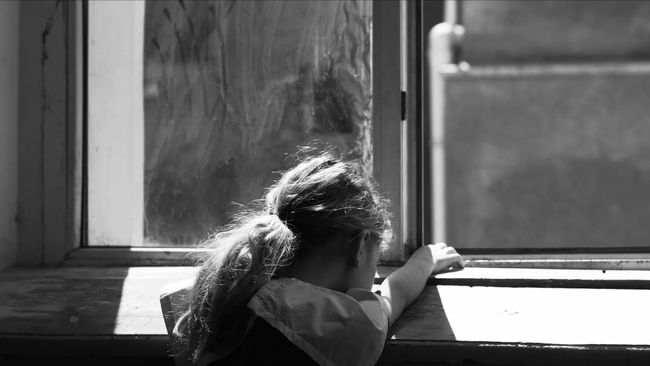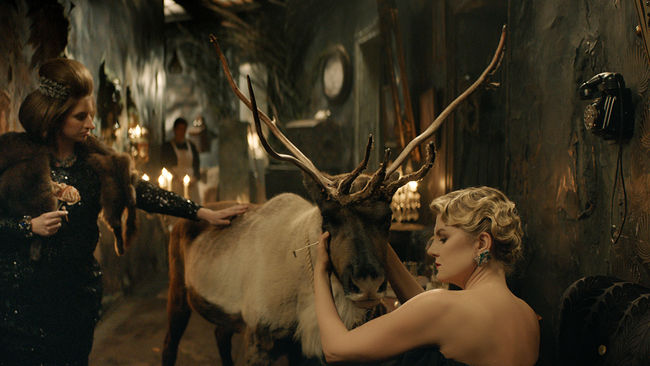Looking for Venera
26 January 2021
For each of the features in competition, IFFR asked a critic, writer, academic or programmer to write a short reflection in a personal capacity. The resulting series of ‘Appreciations’ aims to encourage viewers − and filmmakers − at a time when there is no physical festival. Mario Kozina shines a light on Looking for Venera.
At the beginning of Looking for Venera, Norika Sefa’s debut feature, there is a scene where the eponymous protagonist watches a wildlife documentary on TV. While the narrator is explaining that elephants rarely stray too far from their families, Venera covers the subtitles by attaching a piece of paper to the bottom of the screen. We soon find out that this is a trick suggested to her by her English teacher, aimed at improving her language skills. But just as the English courses are an excuse for the local youth to escape the potato-peeling boredom of their Kosovo village, Venera’s gesture can be understood as an effort to engage in a broader quest to make sense of her own existence, without using the subtitles provided to her by others.
Norika Sefa’s specific style, marked by compositions that often cut parts of the bodies and action out of the frame, reflects her protagonist’s initiative to reframe or redefine her world. The setting might seem familiar − that of a mud-drenched provincial landscape, impoverished in equal measure by recent wars, failed economic transition, and double standards imposed on men and women by the governing patriarchal mindset. Sefa, however, does not force drama out of this context, although she does not turn a blind eye to the forces at play. The potential of male aggression is tangible, but it never explodes in disastrous violence. The double standards clearly affect the lives of women, but do not prevent them from making their own choices. The prevailing tensions can feel oppressive, but not enough to stop our protagonists from fooling around at home or with boys at the local bar.
Sefa smartly avoids the conventional victimising narrative, in which the search for female autonomy is eventually punished. She also avoids the liberating one, in which the protagonist victoriously conquers the patriarchal monster or runs away from it. Like the elephants in the documentary she watches on TV, Venera stays close to her herd, carefully negotiating the space of her freedom, one dance, kiss, confrontation, or slap at a time. This type of systematic underplaying of expected dramatic crescendos makes Norika Sefa’s debut more complex and much closer to life. At the same time, it serves as a valuable revision of the subtitles for stories − be they female, Eastern European or coming of age − embedded on the screen.
Mario Kozina is a film critic and programmer for 25 FPS Festival and head of programming at Cinematheque in Zagreb since 2020.
Appreciations
‘Appreciations’ aims to encourage viewers − and filmmakers − at a time when there is no physical festival. Discover more short reflections on the features in competition.



